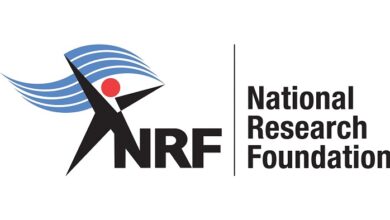Importance of Academic Staff in Shaping Education 2025

Academic staff are the backbone of any educational institution. From universities to colleges and schools, they play an essential role in ensuring the quality of education, mentoring students, and contributing to research and innovation. As someone with experience in this field, I’ve had the opportunity to witness firsthand how academic staff impact the educational journey of students and the reputation of institutions. In this blog post, I’ll share insights about the responsibilities, challenges, and significance of academic staff, using simple and relatable terms.

In simple words, academic staff are the people responsible for teaching, research, and academic development in an institution. They include professors, lecturers, researchers, and teaching assistants. Each of these roles has its unique duties, but together, they contribute to the institution’s mission of providing quality education.
For example:
- Professors often focus on advanced teaching and conducting groundbreaking research.
- Lecturers primarily teach undergraduate or postgraduate courses.
- Researchers dedicate their time to creating new knowledge and finding solutions to real-world problems.
- Teaching assistants support professors and lecturers in delivering lectures, grading assignments, and guiding students.
The Responsibilities of Academic Staff
The responsibilities of academic staff go far beyond standing in front of a classroom and delivering lectures. Their duties can be broadly divided into three categories: teaching, research, and service.
1. Teaching
Teaching is perhaps the most visible role of academic staff. They design course materials, prepare lesson plans, and assess student performance. Effective teaching requires more than just knowledge; it demands creativity, empathy, and the ability to connect with students. Academic staff must ensure that students not only grasp the subject matter but also develop critical thinking and problem-solving skills.
2. Research
Research is a crucial part of an academic staff member’s role, especially in higher education institutions. Through research, they contribute to advancements in their field, publish findings, and often collaborate with other institutions or industries. Research also helps improve teaching quality, as it keeps academic staff updated with the latest developments in their discipline.
3. Service
Service refers to the administrative and community roles that academic staff undertake. This includes mentoring students, serving on committees, organizing events, or representing the institution at conferences. They may also engage in community outreach programs to share knowledge beyond the campus.
The Challenges Faced by Academic Staff
Despite their critical role, academic staff often face various challenges. Some of the most common ones include:
- Heavy Workload: Balancing teaching, research, and administrative duties can be overwhelming.
- Pressure to Publish: In many institutions, career advancement depends on publishing research papers, which can be stressful.
- Limited Resources: Lack of funding or access to resources can hinder both teaching and research activities.
- Student Engagement: Keeping students motivated and engaged, especially in large classes or online settings, can be challenging.
The Impact of Academic Staff on Students
Academic staff have a profound impact on students’ lives. They don’t just teach; they inspire, mentor, and guide students towards achieving their goals. A supportive and passionate academic staff member can make a lasting impression on a student, shaping their career and personal growth.
For instance, I remember one of my own professors who went beyond the syllabus to discuss real-world applications of our coursework. Their enthusiasm for the subject ignited my interest and influenced my career path. This is the kind of impact academic staff strive to achieve.
Why Academic Staff Are Essential for Institutions
For educational institutions, academic staff are more than employees; they are the heart and soul of the organization. Their expertise attracts students, their research enhances the institution’s reputation, and their dedication ensures a positive learning environment. Without committed academic staff, it would be impossible for institutions to fulfill their mission of education and innovation.
Amritsar Junction Railway Station: A Traveler’s Guideline In Punjab
How to Support Academic Staff
Given their vital role, it’s important to support academic staff so they can excel in their work. Here are some ways institutions can help:
- Provide Professional Development Opportunities: Regular training and workshops can help academic staff stay updated and improve their skills.
- Offer Competitive Salaries and Benefits: Fair compensation reflects the value of their work and motivates them to perform better.
- Reduce Administrative Burden: By streamlining administrative tasks, academic staff can focus more on teaching and research.
- Encourage Collaboration: Creating opportunities for interdisciplinary collaboration can spark innovation and enrich the learning experience. Read More




